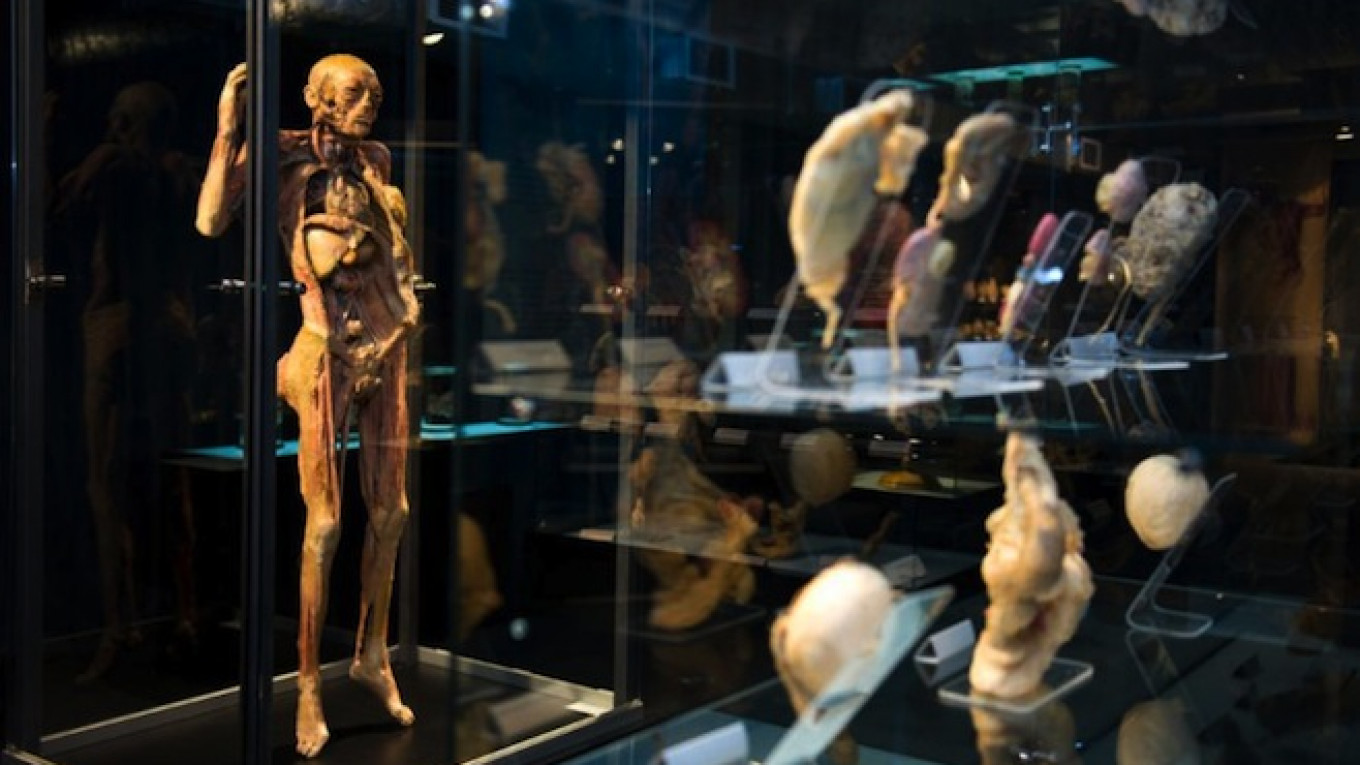An anatomical exhibition titled "The Human Body" opened on Friday in St. Petersburg despite the claims of Orthodox Activists that it would violate the "mystery of death," and could inflict psychological harm on its visitors, news reports said.
The exhibition features human skeletons, preserved human bodies, and body parts. It is intended to educate visitors on human anatomy, the exhibition's organizers were quoted as saying by the Russian News Service on Thursday.
The scientific exhibition has drawn sharp protest from Orthodox activists, who charge that an exhibition featuring human body parts and anatomy could psychologically scar visitors.
"Morgue esthetics are not an appropriate cultural program for the northern capital [St. Petersburg]," said Anatoly Artuykh, head of the Orthodox activist group Narodny Sobor (People's Convocation), the Russian News Service reported.
There is mystery in death, and no one should interfere with that, Artuykh said, adding that doing so could inflict "serious psychological damage on visitors, especially on teenagers."
Exhibition organizers rebuked Artuykh's criticisms by pointing out that Russian Orthodox Church signed off on The Human Body exhibition. A similar exhibition held in 2010 attracted both Orthodox priests and groups of kindergarteners, all of whom expressed curiosity and emerged from the experience unscathed, the organizers said.
"Children don't have such insecurities and stereotypes," Ivan Gaivoronsky, a medical doctor and professor at the Kirov Military Medical Academy, who oversees the exhibition, was quoted by Russian News Service as saying. Gaivoronsky said he had brought his 6-year-old son to see the previous exhibition.
As for any religious objections, the "Church is different now," he said, according to the report. "We have the [leadership's] permission. The human soul is the Church's business, while the frail body is anatomy's business."
The exhibition is intended as a "teaching manual," spokeswoman Yelena Grigorovich was quoted as saying.
"We don't make a show out of it, [we] don't mock the dead people," she said, Russian News Service reported. "The intention is to show the true inner world of a human. We simply compare healthy and diseased organs."
But activists from Narodny Sobor said they would appeal to St. Petersburg's prosecutor's office and to the regional governor, Georgy Poltavchenko, with a demand to shut down the exhibition, the report said.
Orthodox activists have grown increasingly vocal — and sometimes violent – recently in their attempts to shut down exhibitions they deem inappropriate.
An art exhibition at Moscow's Manezh center was ransacked on Aug. 14 by Orthodox activists from another group, God's Will, who damaged several pieces of artwork and called for destroying the rest, saying the exhibition offended believers' sensibilities. Less than two weeks later, Manezh came under a second assault by Orthodox activists.
A Message from The Moscow Times:
Dear readers,
We are facing unprecedented challenges. Russia's Prosecutor General's Office has designated The Moscow Times as an "undesirable" organization, criminalizing our work and putting our staff at risk of prosecution. This follows our earlier unjust labeling as a "foreign agent."
These actions are direct attempts to silence independent journalism in Russia. The authorities claim our work "discredits the decisions of the Russian leadership." We see things differently: we strive to provide accurate, unbiased reporting on Russia.
We, the journalists of The Moscow Times, refuse to be silenced. But to continue our work, we need your help.
Your support, no matter how small, makes a world of difference. If you can, please support us monthly starting from just $2. It's quick to set up, and every contribution makes a significant impact.
By supporting The Moscow Times, you're defending open, independent journalism in the face of repression. Thank you for standing with us.
Remind me later.






